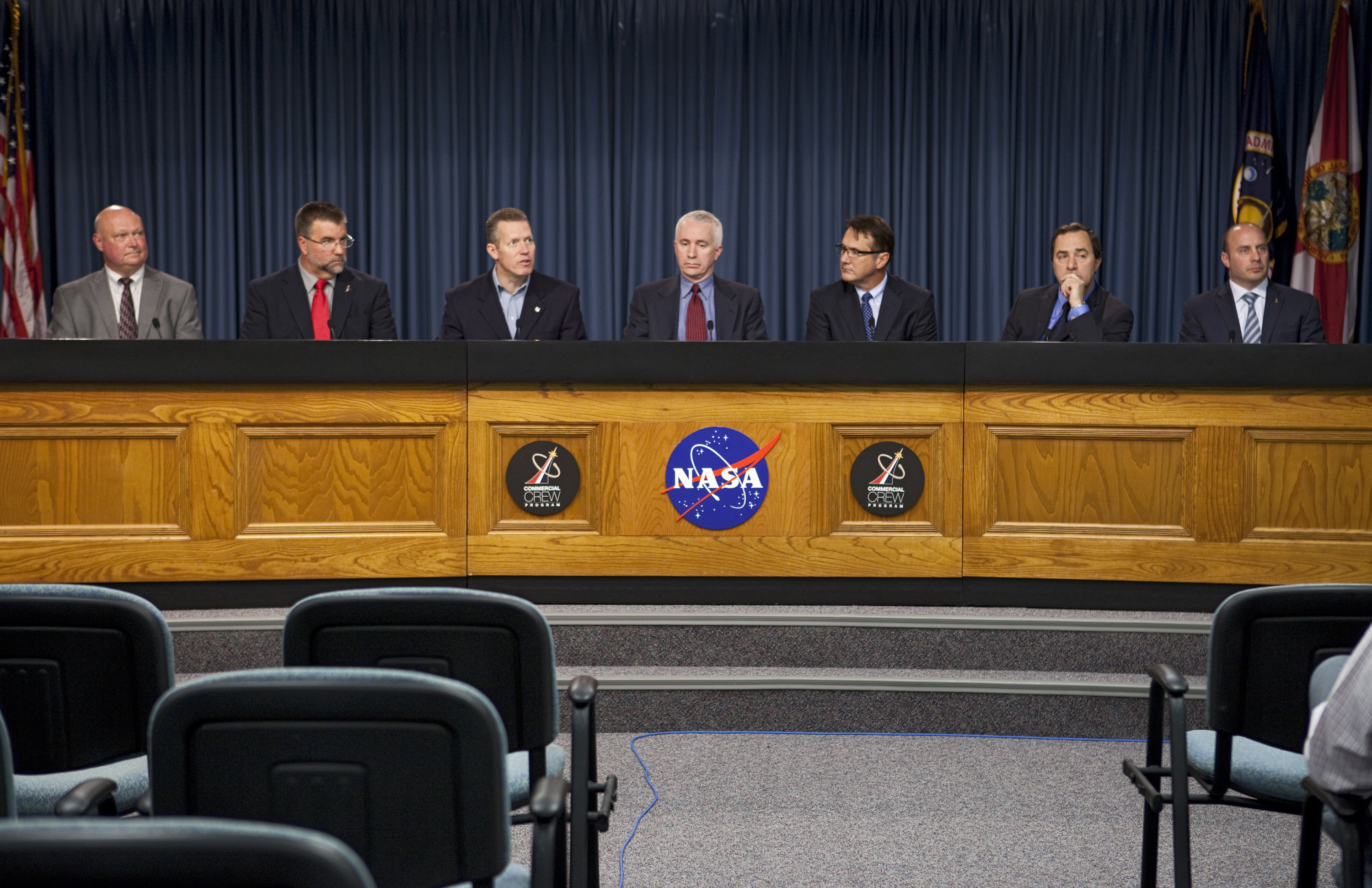With the sequester looming, news outlets, TV pundits, and bloggers are all abuzz about immediate issues Americans may face as a result of $1.2 trillion in cuts to defense, federal programs, social services, and Medicare over the next decade. Most criticism of Washington has been directed at inflexible partisan agendas, a lack of leadership in Congress, and other political factors that got us into this mess. But I think it’s worth taking the time to think outside the usual microcosm of Washington D.C., outside of America-proper, outside even of the Earth’s atmosphere, to consider a potentially terrifying effect of Congress’s impotence.
Yeah, that’s right: I’m talking about how the sequester will influence American endeavors in outer space. I’m talking about the $894 million in cuts to the National Aeronautics and Space Administration (NASA) and how they could easily affect the future of humanity.
Charles Bolden, the current administrator of NASA, has been transparent about the effects of the sequester, stating, “I’m just being very blunt. Anybody who thinks this is no big deal – it’s a big deal.” NASA currently provides 18,000 American jobs, many of which will come under threat by cuts to federal programs. Bolden has also explained that NASA’s research contracts with 26 small businesses will be affected, and that the gap between the US and Russia’s space programs will only widen when NASA loses funding. The sequester, when contextualized with NASA’s other budgetary woes (like President Obama’s independently proposed cuts to the amazing Mars exploration program) will leave NASA as little more than a shell of its former self. The most devastating consequence of these cuts that I can see, however, is an increased and legitimized presence of private interests in space exploration.
On Friday, PayPal founder Elon Musk’s Space Exploration Technologies Corporation, or SpaceX, will launch its second resupply flight for NASA to the International Space Station (ISS). NASA’s involvement with the ISS has historically been one driven by foreign policy and science, as astronauts of fifteen nationalities have occupied the station continuously since 1998. But NASA’s new contracts with companies like SpaceX, Blue Origin (belonging to billionaire Jeff Bezos of Amazon.com), the Boeing Company, and the Sierra Nevada Corp., signify a real shift away from NASA’s old policies of exploration for the sake of exploration and towards profit driven work.
Ron Paul has somewhat infamously called NASA a dead program. But the projects that NASA has been interested in are anything but, and are now being pursued by corporations like SpaceX, who are actually thinking about building a Martian colony with over 80,000 people. “Space Tourism is Here!” proclaimed the New York Times in September 2012, detailing companies like Virgin Galactic and Space Adventures, as well as NASA’s friends SpaceX and Blue Origin. NASA has explicitly said that it will count “on the innovative commercial space industry” to get to its space stations and low orbit destinations.

Space tourism is projected to be a billion dollar industry within the next ten years. NASA has already and eagerly brought companies on board to create a Commercial Crew Program, which will work with companies to ensure that they meet NASA’s “safety and performance requirements.” Truly, this is the stuff of science fiction, out of Alien and Avatar, movies about multinational corporate power reaching such heights that it, not democratic nations, is driving the exploration of the universe.
There is, of course, no saying whether SpaceX or Blue Origin will be like the greedy corporations from Alien or Avatar. In a promotional video for the Commercial Crew Program, representatives from the companies involved emphasized their populist agendas, discussing the importance of creating American jobs, putting Americans back in space, and exploring the frontier with American industry. For its part, NASA has stated that it plans to allow increased private sector support for ISS cargo, crew supply, and low earth orbit while maintaining full control of deep space exploration. But without federal support NASA would lose its backbone, leaving space exploration’s drivers responsible mainly to the shareholders of SpaceX or Blue Origin, not to the American people.
NASA has a history of being undervalued by Americans, despite a staggering list of achievements that were met through federal funding alone. Unfortunately, we seem to be repeating the trend: the Obama Administration’s NASA Authorization Act of 2010 positioned the US to extend its involvement with the ISS, to find “cost effective” solutions for space travel, and to expand the Corporate Crew Program. This agenda, without the sequester, could be all well and good; with funding, NASA could have a relatively easy time maintaining its role as leader in space. If the sequester comes into effect, however, NASA could be permanently left as a shell, incapable of even deep space exploration without corporate sponsors.
The sequester’s consequences will be far reaching. If NASA loses its backbone, corporations, not the US government, will be the leaders who (see Citizens United) take us deeper into our galaxy.

I don’t view this as a problem. You can replace ‘corporations’ with private investors, people who voluntarily want to spend their money in space, etc. This new age in space exploration (though it obviously owes its existence to NASA research and funding) will bring with it the good aspects of ‘greedy corporations’ – lowered cost, increased efficiency, etc. If exploring our galaxy is an ultimate good in and of itself, I don’t see why we’re concerned about whether private investors and consumers decide how to do it rather than a democratic majority and its resulting government and bureaucrats. Especially if that private industry will do it cheaper and faster.
Thanks for your comment. Even if there were “private investors and consumers” and not corporations in position to lead the exploration of the galaxy, I think there would still be the same problems. People with capital would be privileged over those without it, legitimizing the unfortunate phenomenon of money dictating policy. Basically, those with money could control NASA, and those without it would have no voice, replicating in many ways what we now have under Citizens United.
Just so I am clear–private individuals’ interest and involvement with NASA, like the private sector’s, is not the problem. But if the sequester goes into full effect, SpaceX, Blue Origin and the rest would become essentially unregulated businesses, and I think the financial crisis tells us that unregulated businesses tend to be greedy, cruel, and irresponsible. I see no evidence that the context, whether it is the housing market or our solar system, would change that tendency. After all, “it’s just business.”
I find it quite difficult to sympathize with your view that commercial expansion into space is a problem. The extraplanetary activities that corporations are currently attempting to undertake are limited to ISS resupply, satellite deployment, space tourism, and possibly asteroid mining. I don’t see where the potential is for any of those activities to result in exploitation of the public for the benefit of a few.
That said, your argument that defunding NASA is a terrible policy move is compelling. NASA is probably the single most effective federal agency. It gets a tiny sliver of the federal budget and yet its exercises have made huge technological contributions to our society that have boosted quality of life and GDP. I am a scientific idealist and believe that NASA’s pursuit of knowledge for its own sake is worthwhile, but even those who don’t must see how economically sensible it is to put money into NASA.